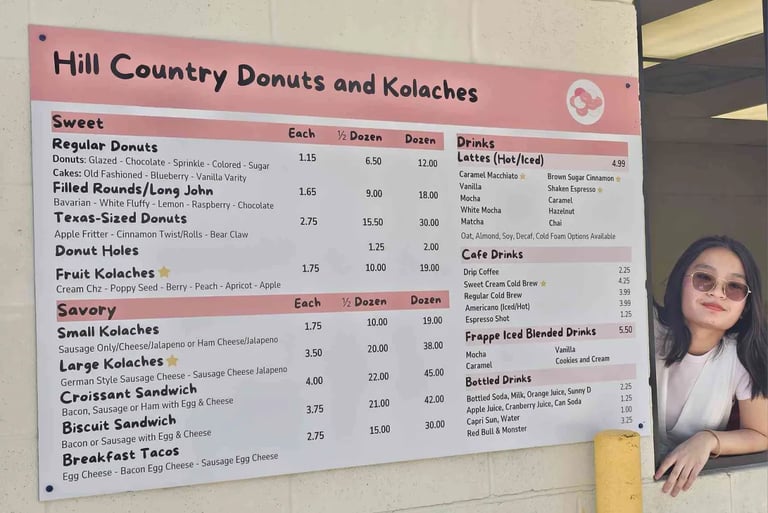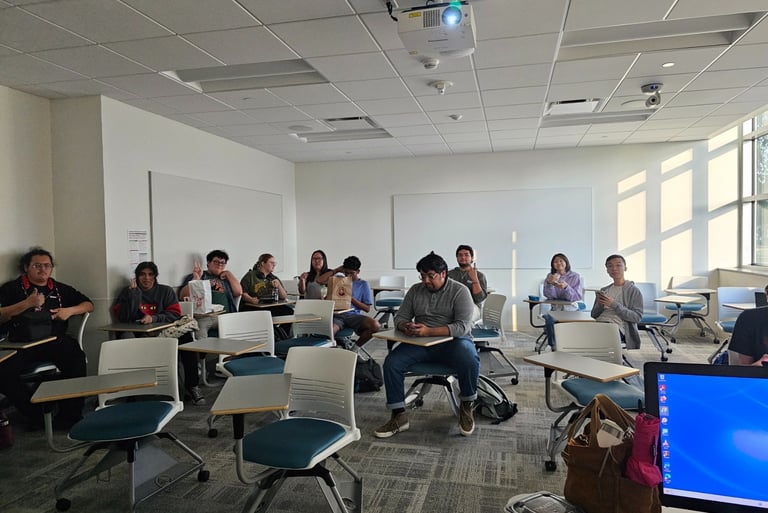Leadership Competencies
November 20th 2024
Introduction
Being a leader is like being the conductor of an orchestra. A leader without their orchestra is a person with nothing but a wand. The wand is useless on its own, as it is a mere stick amongst violins, pianos, and cellos. In a worst-case scenario, the wand waving in the wrong person’s hand would only make them look like all the loose screws in a screw box. The wand can only weave magic if the person holding it has a tune, a vision in mind, that their orchestra already knows by heart. The first movement of a conductor’s wand is always what starts the music, but it's always the orchestra who plays the last note.
Though I do earnestly believe that I am the least musical of my peers, I do also honestly believe that this is the most succinct way that I can define my style of leadership. In contrast, the social phycologist Kurt Lewis would theoretically define me more broadly as a delegative leader. I’m mostly around to bring everyone together and keep everyone in communication with each other. I do not think of the people that I lead as followers, but as peers and friends, so I have a lot of trust in them (Lindberg, 2022).
The leadership competencies that I believe to be the foundation of my leadership style are my creativity, mentorship, and networking ability. My creativity is the primary reason why people entrust me with leadership positions, because it always comes with a promise of change and progress. I only am as creative as I am due to the creative skills that I’ve cultivated over the years, and I’m always willing to teach the same skill to those around me. Lastly, it’s always said that ‘it’s not what you know, but who you know’ that gets people into places, and I’ve been to a lot of places.
Leadership Competency I: Creativity
I’m a jack of all trades, master of some, when it comes to the creative arts. However, the craft that I have mastery of is live game design. I’ve scripted and hosted murder mystery nights, fantasy role playing sessions, and professional teambuilding demos. I am also the person that initiates most of the in-person gatherings for some of my organizations. The ability to entertain large groups of people at a time for hours at a time allows me to be a modern bard that doesn’t have to answer a king.
If someone has enough sway to entertain people, they also have enough sway to change the hearts and minds of those people. If it wasn’t for the trust that people have in me to lead events and initiatives, they wouldn’t let me change and transform pre-existing events, procedures, and protocols. The board game club that I’m currently the head of now offers non-board game special events, such as game show nights, to draw in more people to the organization following semesters of declining membership. I’ve also convinced my formerly entirely online and unofficial creative’s club to start organizing informal gatherings at “the spot” in the student center. This initiative ended up being one of our first steps into becoming an official school organization. In both situations as a delegative leader, I started the change, but other people continued the trend.
Areas that I could improve on in respect to this competency are my proneness to artistic burnout. Since I host events so often, usually with little to no assistance, I run some of my events on a very low social battery. Said events tend to flop. This has led me to believe that I might have a chronic physical and emotional energy crisis problem, especially towards the end of the semester. As I was informed by Professor Guchiat, the only way for me to resolve it is to allow myself more rest and to stop overextending myself (Guichait, 2024). I’ve already made some strides in reducing my obligations to some of my organizations. However, there’s still a lot of “no I can’t do that” that I still need to deliver to a lot of people for my own sake.


Being a mentor is second nature to me. Whenever I gain experience and seniority in whatever I am doing, I have the innate need to talk about whatever I just did. The people that are most willing to listen are always the ones that are the most willing to learn. Thus, the more people that I teach, the more people I can communicate with on a much deeper level about the things that we both love. I’m no gatekeeper. If someone wants to become the conductor, I will give them the wand if they know how to use it.
At this point of my life, I believe that I have three skills that I am qualified to mentor any beginner in. The first skill is live game design, as mentioned in the previous section. This specific skill is so niche that people do come out of their way to learn from me. Everyone that came into my learning sessions only started as participants, but afterwards they came out as more than capable social hosts. The second skill is both creative and academic writing. This has landed me a position as an official writing consultant/mentor as well as a leadership position in the previously mentioned creative club. The last skill is the one that I came to college to develop, which is making pretty drinks as a barista.
If I want to further excel as a delegative leader, I need to make sure that the people that can cover me are fully able to do so. I consider the breadth of my skills to tend to be wide rather than deep. This means that my mentorship abilities begin to flounder whenever my mentees get experienced enough to want to specialize. For all the skills that I can mentor in, I want to get on the same level of mastery as speaker and ballon making expert Liz Jaramillo. Like her, I want to become the definite authority on a subject and become the mentor of more than just a handful of people. Like her, I should put what bits I do know publicly on the internet to expand the range of my mentorship (Jaramillo, 2024).
Leadership Competency 2: Mentorship
Leadership Competency III: Networking
Due to my reputation as a social host and mentor, it isn’t hard for me to get to know the people that are around me. I’m active as a leader in more than a handful of organizations. Thus, I’m entrusted with transmitting information between the leadership circle of one organization to another organization. Most of the time, this information involves letting an organization be aware of an opportunity that another organization is providing. In times of conflict, I become an important fact finder and arbiter. This last competency is my key to expanding my outreach from a local context into a global one.
My successes in leadership involving my networking ability include harm reduction and the facilitation of collaborations between organizations. I prevented bad actors from entering other organizations, after they had been removed from their original organization for foul play. I am the open door that lets junior members whistle blow on problems that they may be afraid to tell other senior leadership. Following my joint conflict resolution efforts with those associated leaders, the organizations that I directly represent have since been asked to collaborate in joint events with their organizations. Since I’m a delegative type of leader, I usually hand off these opportunities to the president I assist, and they make the final decision on the opportunity.
However, if there was one major area of improvement for my networking efforts, is that I have a reputation of vigilantism that I must resolve. I’m not afraid of confrontation or the consequences of it, but a lot of people around me are. Sometimes, when I think I’m bringing a metaphorical hammer to nail down a problem, other people see me holding a collateral damage dealing warhammer. I imagine that my behavior would especially concerning in a global context, wherein blunt resolution to conflict is often looked down upon. As hospitality law expert Dr. Barth might suggest, I might not be dealing with my problems in the most emotional intelligent way. To be more emotionally intelligent, I need to work on my emotional competency and relationship management skills. This is so I can be better about bringing peace into my network without the risk of strife (Barth, 2024).


I lead by example, so that others can one day also be examples to those around them. My delegative leadership style, like a symphony of many instruments, relies on my core leadership competencies in creativity, mentorship, and networking. It’s through my creativity that I draw those around me to listen to me and observe my direction and motions. It’s through my mentorship that my peers develop the skills that they need to begin their own tune. Lastly, it’s through my ability to connect my peers with each other that I help my friends enjoy company in spaces that are dynamic and yet peaceful.
However, I still have a lot to learn if I want to continue improving as a leader. I need to become more emotionally intelligent, more knowledgeable, and more aware of my physical and emotional limitations. By working on these competency deficiencies, I will become a stronger global citizen who can better empower others strong individuals far from my local reach. If then, and only then, I could say that I’ve achieved my job as a contemporary bard amongst peers and equals in a globalized world.
Conclusion
References
Barth, S. (2024) Emotionally Intelligent Leadership. University of Houston. https://hospitalitylawyer.com/
Guchiat, P. (2024) “Energy Management” University of Houston. Lecture.
Jaramillo, L. (2024) “BeautyLooms by Liz”. University of Houston. Lecture.
Lindberg, C. (2022) Kurt Lewin Leadership Styles. Leadershipahoy. https://www.leadershipahoy.com/kurt-lewin-leadership-styles/
